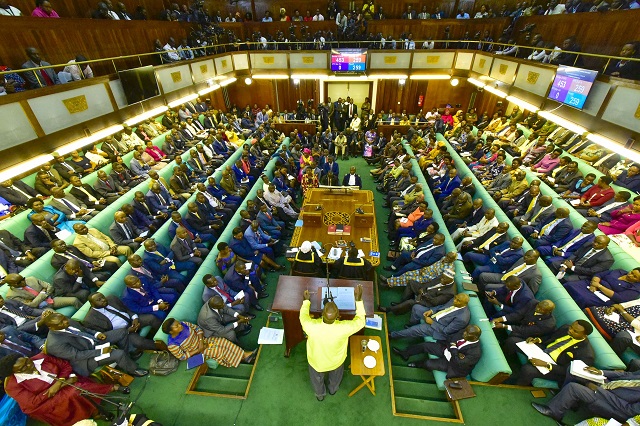
Recent Constitutional Court ruling shows that although it has been a norm for a long time, it does not make it right
COMMENT | MICHEAL ABONEKA | The Ugandan legal framework provides for a Member of Parliament to double as a Minister at the appointment of the President. There have ensued debates on the constitutionality of such provisions considering the principles of separation of powers and public interest.
The Constitutional Court on March 18 delivered a landmark judgement in the Constitutional Petition No. 16 of 2016 in which the Court emphasised that a Judicial officer who has not resigned their judicial position/office cannot at the same time work in a public office following the appointment by the Executive as this breaches the principle of separation of powers among others.
It is now clear that a Judicial officer cannot serve with one leg in the Executive and the other in the Judiciary as this offends Judicial Independence. It is now time to look into steering clear of the fusion between the Executive and the legislature as a number of MPs are appointed as Ministers by the Executive which in my opinion also offends the separation of powers and we hope that this confusion can now be settled by the landmark petition depending on the school of thought one subscribes to.
We have MPs doubling as Ministers an issue we need to put to rest as it breaches the principle of separation of powers and delegated citizens power through the periodic social contracts.
First, having MPs double as Ministers violates the principle of separation of powers. The executive is fused with the legislature by the appointment of an MP to the Executive. The Minister is supposed to be bound by the Collective responsibility principle even if it affects his people to whom he represents. What happens in scenarios where the Cabinet decisions are not in favour of the Constituents?
The voters lose their delegate power to an MP who later becomes Minister and much as voters vouch for the appointment of their MPs as Ministers, this they do in ignorance because it takes away their power. This fusion of the Executive and Legislature needs to be broken for there to be a clear separation of powers.
The Constitutional Court has on various occasions dealt with the principle of separation of powers; especially where the Executive appointments fuse with other arms of government such as the Judiciary-the jury is already out on this in the recent Court Judgement. I do hope that as the new Government sets in, they consider breaking the fusion and confusion and leave MPs to serve their purpose and appoint Ministers from elsewhere to avoid another constitutional conundrum. If this advice falls on deaf ears, perhaps we shall invite the Court to look into this matter again for we need to guard our democracy and constitutionalism.
Secondly, how do we guard against double payments? Do MPs who are ministers reject the privileges and allowances for an MP-mileage allowances, cars among others? When a minister who is an MP visits their constituency, do they use their car as an MP (for which car they were paid Shs100 million) or the one under their ministry? Do they use the fuel as per the MP mileage allowance or that of the ministry? How do we draw the lines; especially on these costs? Could it be that MPs who double as ministers are getting double allowances? We need to dig deep into this issue otherwise we might be losing billions on these expenditures.
Thirdly, there is a representation gap. Does an MP who doubles as minister have time to represent their constituents effectively in the house? How often do they attend plenary in the house as opposed to travels abroad and the frequent state assignments? How do we guard against conflict of interest in as far as balancing between ministerial collective responsibility and the interests and views of the voters? For instance, how do you expect the Minister of Lands to articulate grievances of their voters in opposition of a government bill on land? How will they present both views? If they are bound by the collective responsibility principle, then who represents the dissenting views of their constituency?
This means that their voters are left out completely with no representation on this issue. When we vote for our MP, the terms of reference are clear…to represent us! When they are appointed as Minsters and they hardly have time to respond to our needs and represent us effectively, isn’t this a ground to terminate the social contract?
The MPs doubling as ministers has been a norm for a long time, but a norm, practice over time does not make it right and constitutional. If we need to have our three arms of government function (by way of checks and balances-as there exists frameworks for this); we need to safeguard the principle of separation of powers to the letter for it is the cornerstone of a functioning democratic state in real terms.
****
Michael Aboneka is a Partner:Thomas & Michael Advocates
 The Independent Uganda: You get the Truth we Pay the Price
The Independent Uganda: You get the Truth we Pay the Price


